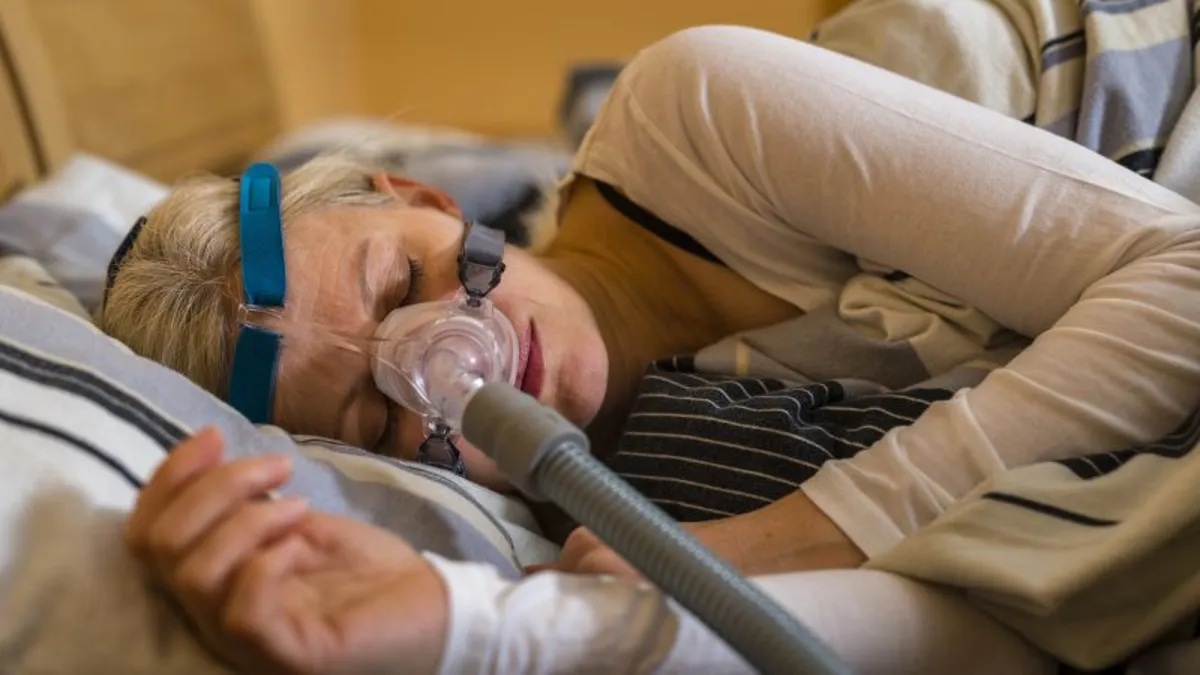
Many individuals may dismiss their snoring as simply a nuisance, but recent research emphasizes the need to take obstructive sleep apnea seriously. For those diagnosed with this condition, the recommendation to use a CPAP machine may feel overwhelming. However, a new study reveals that untreated sleep apnea can significantly increase the risk of developing dementia and Alzheimer’s disease later in life.
Moderate to severe obstructive sleep apnea has been linked to an increased incidence of cerebral microbleeds, which are small bleeding events in the brain. Dr. Jonathan Graff-Radford, a neurologist at the Mayo Clinic College of Medicine, explains that microbleeds are commonly observed in the aging brain. “Microbleeds increase with age, and individuals with these conditions face a higher risk of future strokes and accelerated cognitive decline,” he notes. This correlation underscores the necessity of treating sleep apnea effectively.
Obstructive sleep apnea occurs when the airways are blocked due to the relaxation of soft tissues in the throat, disrupting normal breathing patterns during sleep. This differs from central sleep apnea, where the brain fails to signal the body to breathe. Treatment options for obstructive sleep apnea include oral devices, continuous positive airway pressure (CPAP) machines, and surgical interventions. Dr. Rudy Tanzi from Harvard Medical School emphasizes the importance of screening and treatment, stating, “Don’t ignore it. Do something about it.”
Neglecting obstructive sleep apnea can lead to a range of health issues. Not only does impaired breathing result in poor-quality sleep, but it also contributes to brain aging. The combination of sleep deprivation and the potential for increased microbleeds presents a “double whammy” effect on cognitive health. Dr. Tanzi cautions that the risks associated with untreated sleep apnea extend beyond immediate concerns, affecting long-term brain health and increasing susceptibility to dementia.
The recent study published in JAMA Network Open highlights the association between obstructive sleep apnea and cerebral microbleeds. As an observational study, it indicates a correlation rather than establishing a direct cause-and-effect relationship. Future research is necessary to determine whether effective treatment for sleep apnea can mitigate the occurrence of microbleeds.
It’s crucial to identify the signs of obstructive sleep apnea to seek timely medical advice. Frequent and loud snoring is a primary indicator, as are observed breathing pauses during sleep, gasping, or choking. Daytime symptoms like excessive sleepiness, difficulty concentrating, irritability, and heightened appetite may also signal poor sleep quality. Research indicates that around 30% of individuals with obstructive sleep apnea report experiencing night sweats, which can further point to the condition. Waking up multiple times during the night, teeth grinding, and morning headaches are additional symptoms to watch for.
Dr. Tanzi insists that the findings of this study should compel individuals to take the risks associated with obstructive sleep apnea seriously. The potential consequences on brain health can be more severe than previously thought, making it essential to seek evaluation and treatment if you suspect you have sleep apnea.